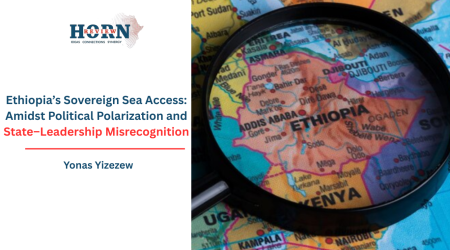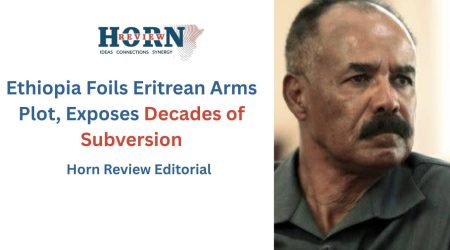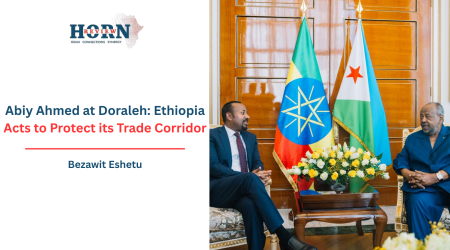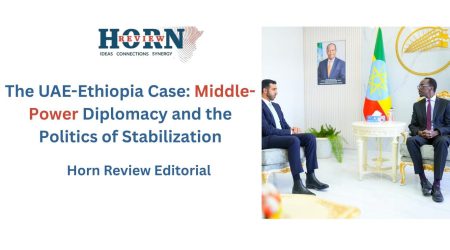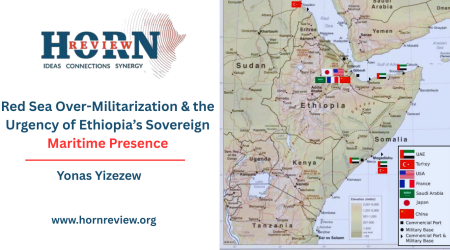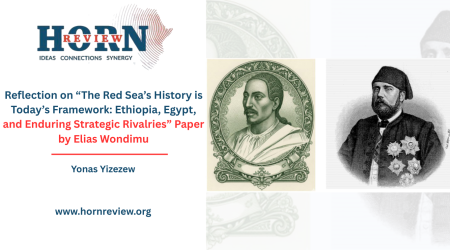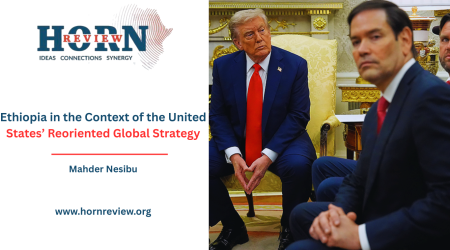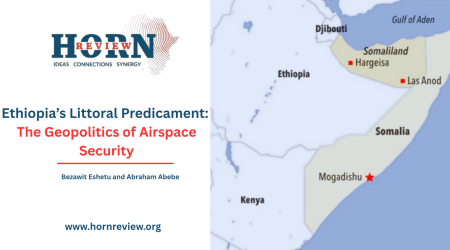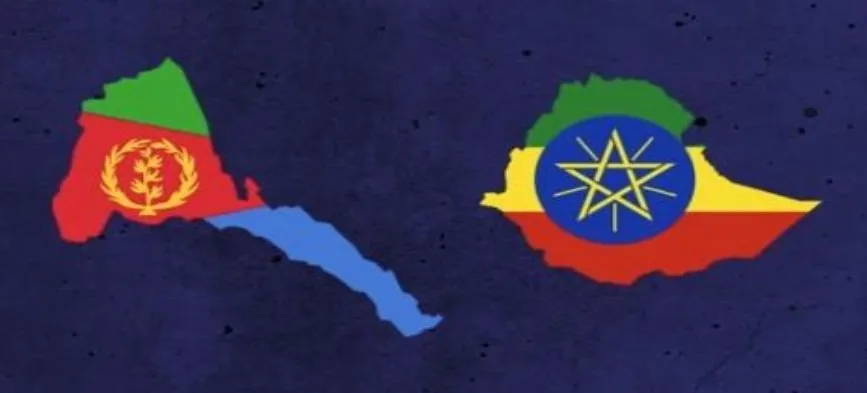
7
Apr
Ethiopia-Eritrea Tension: A Volatile History that Never Truly Ended – Could Assab Become Africa’s Crimea?
Tensions between Ethiopia and Eritrea are once again rising, threatening to reignite one of Africa’s longest-standing conflicts. The 2018 peace agreement, hailed as a historic step toward reconciliation, never fully resolved the deep-rooted animosities between the two nations. Old wounds remain open, exacerbated by border disputes, military posturing, and competing regional interests. Recent developments suggest that the fragile peace is unraveling, with both nations edging closer to a dangerous confrontation.

Prime Minister Abiy Ahmed & President Isaias Afewerki, 2018
The history between Ethiopia and Eritrea is marked by shifting alliances and cycles of war. Eritrea’s independence in 1993 severed Ethiopia’s maritime access, forcing it into a landlocked existence dependent on Djibouti. The border war of 1998–2000, which resulted in tens of thousands of deaths, deepened hostilities. While the 2018 peace agreement nominally ended the conflict, it failed to address key grievances.
The issue of border demarcation remains unresolved, and tensions have been heightened by Eritrea’s involvement in Ethiopia’s Tigray war from 2020 to 2022. Despite the Pretoria Agreement mandating the withdrawal of Eritrean forces, Asmara has remained defiant, arming and training Amhara Fano and Shene insurgents fighting to overthrow the FDRE government, further fueling resentment from Ethiopia’s side. The recent port access deal between Ethiopia and Somaliland underscores Addis Ababa’s determination to secure an independent maritime route, a move that Asmara sees as a direct challenge to its regional influence and potential leverage over Ethiopia.
Eritrea has now intensified its military preparations through mass conscription, travel bans, and the mobilization of reserves, signaling a heightened state of readiness. However, its small population and outdated Soviet-era weaponry limit its capacity to sustain a prolonged conflict, even with support from third-party actors pursuing proxy interests.
Ethiopia, despite internal instability in Amhara, Tigray, and Oromia, remains the stronger military power, with a modernizing arsenal and superior economic resources. In response to Eritrea’s military buildup, Addis Ababa has reinforced its military presence in and around border towns, particularly in Afar, while pursuing diplomatic efforts to ease tensions and avoid armed confrontation. However, President Afwerki’s reluctance to engage in talks has forced Ethiopia to maintain defensive posture along its border. This development suggests that both nations are bracing for potential escalation.
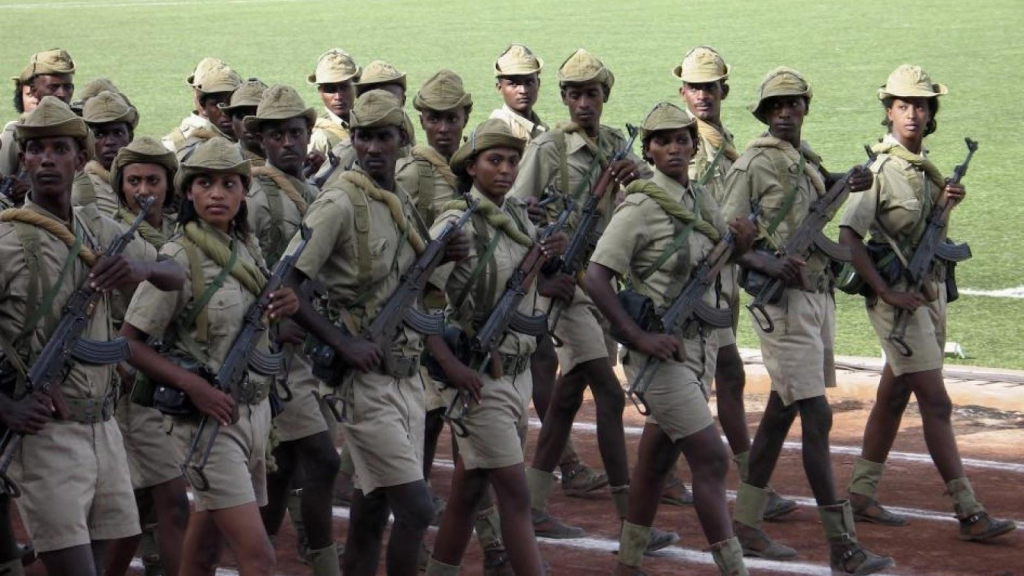
Eritrean soldiers march during the country’s Independence Day in Asmara in this May 24, 2007 © Reuters
Beyond the bilateral hostilities, external powers are shaping the trajectory of this growing tension. Egypt, locked in a long-standing rivalry with Ethiopia over the Grand Ethiopian Renaissance Dam (GERD) and related geopolitical ambitions, is widely believed to be courting Eritrea as a strategic ally. If Asamara aligns itself with Cairo in this contest, it could find itself embroiled in a proxy war it cannot afford to fight. Ethiopia, despite its domestic struggles and the political developments in Sudan & South-Sudan perceived as less favorable to its interests, remains a formidable adversary. Hence, should Eritrea provoke a direct confrontation, it risks being outmaneuvered, outgunned, and ultimately isolated on the world stage.
In this unfolding crisis, Assab emerges as the most vulnerable piece on the chessboard. If war were to erupt, one outcome seems increasingly plausible: Ethiopia, long denied access to the sea, could move to reclaim the strategic port of Assab. In such a scenario, Eritrea’s control over Assab could be permanently altered, akin to Russia’s annexation of Crimea in 2014.
Much like Crimea, the port city of Assab, once Ethiopia’s principal gateway to the Red Sea, holds immense strategic and economic value. Ethiopia’s need for unrestricted maritime access has never dissipated, and a military operation to seize Assab would not require an all-out invasion of Eritrea, just a swift, calculated maneuver framed as an economic and security imperative.
Where Asmara initiates hostilities, Addis Ababa could justify the seizure of Assab as a necessary step to secure its national interests. The international community’s response would likely be muted, particularly if Eritrea is perceived as the aggressor. Much like Crimea, which fell under Russian control with little effective resistance from global powers, Assab could become another contested territory whose fate is determined by force rather than diplomacy.

The port city of Assab
While war is not yet inevitable, the conditions for conflict are steadily aligning. Ethiopia’s internal crises present a temporary distraction, but they do not eliminate the long-term strategic imperative of securing direct access to the sea. Eritrea’s military limitations and economic fragility make it ill-equipped for sustained warfare.
International actors, including the African Union and the United Nations, may seek to mediate, but their influence has historically been limited in the region. If hostilities erupt, Asmara could find itself in an unwinnable battle, with Assab slipping from its grasp.
For Eritrea, the stakes are existential. If President Isaias Afwerki miscalculates and leads his nation into war, he risks not only military defeat but the irreversible loss of territory. Unlike Ukraine, which has garnered widespread international support in its struggle against Russian aggression, Eritrea stands alone. Isolated, militarized, and economically constrained, it would bear the full cost of a conflict that could permanently alter its borders. In such a scenario, Afwerki would not be remembered as a leader defending his nation’s sovereignty, but as one who gambled it away in a reckless pursuit of regional influence.
The Horn of Africa is one again at a critical juncture. Whether Eritrea chooses the path of diplomacy or confrontation will determine not only its own future but the geopolitical landscape of the region. If war comes, Assab may well be the first casualty, another piece of territory lost to the tides of history, as Africa watches its own version of Crimea unfold. But it won’t probably stop there. It is going to be a war fought to the last end for it not.to bereate another cycle or threat of violence that would destablise the.region and cause more human misery.

